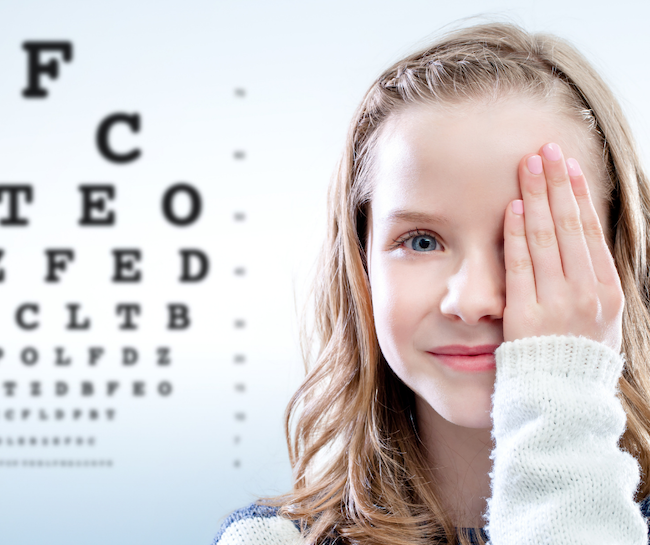Does Myopia Get Worse With Age?

Many parents who come into our practices consider their children’s myopia as a simple vision problem that needs correction. Each time the child needs a higher prescription, they just “fix” it by buying them a new pair of glasses.
What many parents don’t realize is that myopia can actually harm a child’s eyes and vision, especially as the child ages.
Below, we’ll explain what myopia is, how it progresses with age, and why parents should take action now to preserve their children’s gift of sight for the future.
What is Myopia?
Myopia is an eye disease where the eyeball grows too long, leading light to be focused in front of the retina instead of directly on it. This causes distant objects to appear blurry.
Because the eye elongates and grows with the rest of the body, naturally, it stops elongating once the rest of the body stops growing in early adulthood. This also means there may be times in a child’s development where they experience growth spurts—suddenly requiring a higher prescription.
Myopia typically starts in childhood and progresses throughout the school-age years, usually stabilizing around their late teens.
While scientists don’t fully understand all the causes of myopia, we know that genetics and certain environmental factors play a key role in its development and progression.
Why Should Parents Care About Myopia Progression?
Myopic children are at a higher risk of developing sight-threatening diseases like glaucoma, cataracts, retinal detachment, and macular degeneration later in life.
Children with rapidly progressing myopia are even more prone to developing these diseases.
So why wait for your child’s myopia to worsen before seeking treatment? Slowing myopia early on can make all the difference to your child’s eye health as they age.
In fact, a study published in the Journal of Optometry and Vision Science found a jarring statistic about myopia progression that all parents should be aware of. The researchers discovered that a 1 diopter change in a child’s prescription was associated with a 67% increase in developing myopic maculopathy (myopic macular degeneration) — a leading cause of irreversible visual impairment and blindness.
The same study also noted that when parents provided their children with myopia management, the risks of developing myopic maculopathy fell by 40%.
Can Myopia Progression Be Slowed?
Yes! It certainly can be slowed, and even halted.
At Treehouse Eyes, we offer the latest and most effective treatments for childhood myopia so that every one of our patients receives the best shot at lifelong healthy vision.
Our optometric team will meet with you and your child to determine the most suitable treatment for your child’s eyes and lifestyle.
Why wait? It’s never too early to start treating myopia. To schedule your child’s myopia eye consultation, call us today!